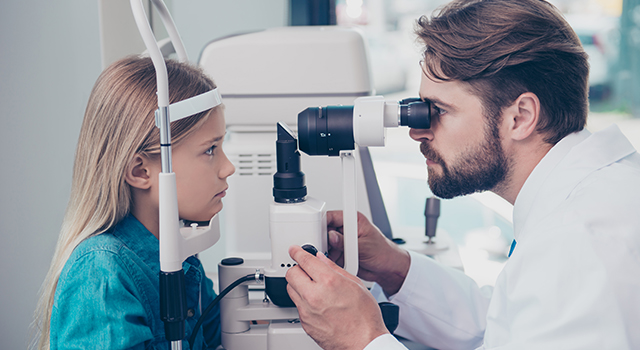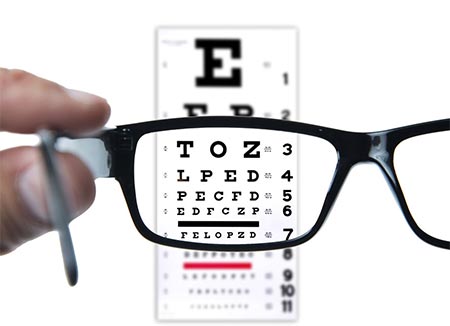Optometrist Montgomery: High Quality Eye Treatment and Vision Solutions
Optometrist Montgomery: High Quality Eye Treatment and Vision Solutions
Blog Article
The Relevance of Normal Eye Tests: Insights From an Experienced Ophthalmologist
Regular eye exams serve as an important part of medical care that extends beyond plain vision adjustment. A skilled eye physician can supply understandings into exactly how these assessments not just detect common eye conditions but also reveal underlying health issues that might or else go undetected. The silent progression of diseases such as glaucoma and macular degeneration underscores the need of very early discovery. Comprehending the frequency and significance of these assessments can ultimately affect one's lasting health trajectory, increasing the concern of just how typically people must prioritize their eye wellness in the context of total health.
Advantages of Regular Eye Examinations
Although many people might neglect the importance of normal eye exams, these analyses play a crucial function in preserving overall wellness and well-being. Routine eye examinations offer not just to evaluate vision yet also to discover very early signs of systemic health and wellness concerns, consisting of diabetes and hypertension. By recognizing these conditions at their creation, individuals can receive timely treatments, dramatically improving lasting results.
In addition, eye exams can help in monitoring existing health problems, making certain that any modifications in vision or eye health and wellness are immediately addressed (optometrist). The assessments enable for individualized referrals regarding eyewear, lifestyle modifications, and protective procedures against prospective eye stress or damage
Beyond physical wellness, the benefits of regular eye tests extend to enhancing top quality of life. Eventually, prioritizing eye tests cultivates a positive approach to wellness administration, empowering people to take fee of their well-being.
Common Eye Issues Detected
Routine eye exams contribute in finding a range of usual eye problems that can considerably influence vision and overall wellness. Among one of the most common conditions determined during these assessments are refractive errors, consisting of myopia (nearsightedness), hyperopia (farsightedness), and astigmatism. These conditions often materialize as blurred vision and can be quickly remedied with prescription glasses or get in touch with lenses.
Additionally, cataracts, which trigger clouding of the lens, are frequently identified in older grownups. This condition can bring about decreased vision and calls for medical treatment for resolution. One more usual issue is glaucoma, a group of eye conditions that damage the optic nerve, usually linked to boosted intraocular stress. Early detection is vital as it can avoid irreparable vision loss.
Age-related macular deterioration (AMD) is another significant condition that impacts main vision, specifically in people over 50. Finally, diabetic retinopathy, a difficulty of diabetes, can bring about extreme vision problems if not monitored on a regular basis. With comprehensive eye exams, these problems can be identified early, allowing for prompt management and therapy to preserve vision and boost lifestyle.
Relevance of Very Early Discovery
Early discovery of eye problems plays a crucial function in preserving vision and avoiding significant health difficulties. Lots of eye illness, such as glaucoma, diabetic retinopathy, and age-related macular degeneration, can progress calmly without obvious symptoms in their very early phases. By the time symptoms show up, irreparable damage might have happened, resulting in long-term vision loss.
Routine eye examinations facilitate very early diagnosis, permitting prompt intervention and therapy. For instance, dealing with elevated intraocular stress can avoid the onset of glaucoma, while handling blood sugar degrees can substantially reduce the danger of diabetic retinopathy. Furthermore, conditions like cataracts can be successfully managed with medical intervention when recognized YOURURL.com early.

How Commonly Should You Visit?
Figuring out the regularity of eye examinations is essential for preserving optimum eye health and vision. The general referral for grownups is to have a comprehensive eye examination each to 2 years, depending upon private risk factors and age. For individuals matured 18 to 60, a test every 2 years is typically enough if no vision problems are present. Nevertheless, those over 60 need to take into consideration yearly tests, as the threat of age-related problems raises considerably.
People with details threat variables, such as a family members background of eye illness, diabetes, or existing vision problems, might need more frequent analyses. Kids must have their very first eye exam at 6 months old, followed by additional examinations at age three and prior to going into school. Normal more examinations during childhood years are critical as vision can transform quickly during developing years.
Eventually, the frequency of visits must be tailored per person's situations, including lifestyle, job-related threats, and any type of pre-existing eye conditions. Consulting with an eye treatment expert can provide tailored suggestions, ensuring that your eye wellness is regularly checked and preserved.
Tips for Your Eye Exam
Getting ready for your eye exam can boost the efficiency of the visit and make sure a comprehensive analysis of your eye health and wellness. To optimize your time with the eye physician, it is critical to gather pertinent info prior to your consultation. Start by putting together a checklist of any drugs you are presently taking, including non-prescription medications and supplements, as these can affect eye health.
In addition, record any symptoms you have actually experienced, such as obscured vision, pain, or headaches. This info will certainly aid your ophthalmologist in identifying prospective concerns. If you wear glasses or get in touch with lenses, bring them along, also if you do not use them routinely. This will aid the medical professional examine any type of adjustments in your vision.
It is also useful to have a household background of eye conditions available, as genetic elements can add to your eye wellness. Ultimately, take into consideration arranging your test temporarily when you are much less rushed, enabling you to ask questions and discuss your concerns extensively. By preparing adequately, you ensure that your eye exam is productive and that your optometrist has all the essential details to supply the very best care possible.

Final Thought
Regular eye exams play a critical function in maintaining both vision and general wellness. Ultimately, focusing on comprehensive eye examinations contributes substantially to the conservation of vision and the improvement of high quality of life, underscoring the necessity of routine eye treatment in preventative healthcare methods.
Normal eye exams are important in identifying a variety of typical eye problems that can significantly impact vision and general wellness.Determining the frequency of eye exams is necessary for keeping site here optimum eye health and vision.Preparing for your eye exam can improve the efficiency of the browse through and ensure an extensive examination of your eye wellness (optometrist). By preparing properly, you guarantee that your eye examination is efficient and that your eye medical professional has all the essential details to provide the best care possible
Ultimately, prioritizing extensive eye assessments contributes substantially to the conservation of vision and the enhancement of high quality of life, highlighting the requirement of routine eye treatment in precautionary healthcare strategies.
Report this page